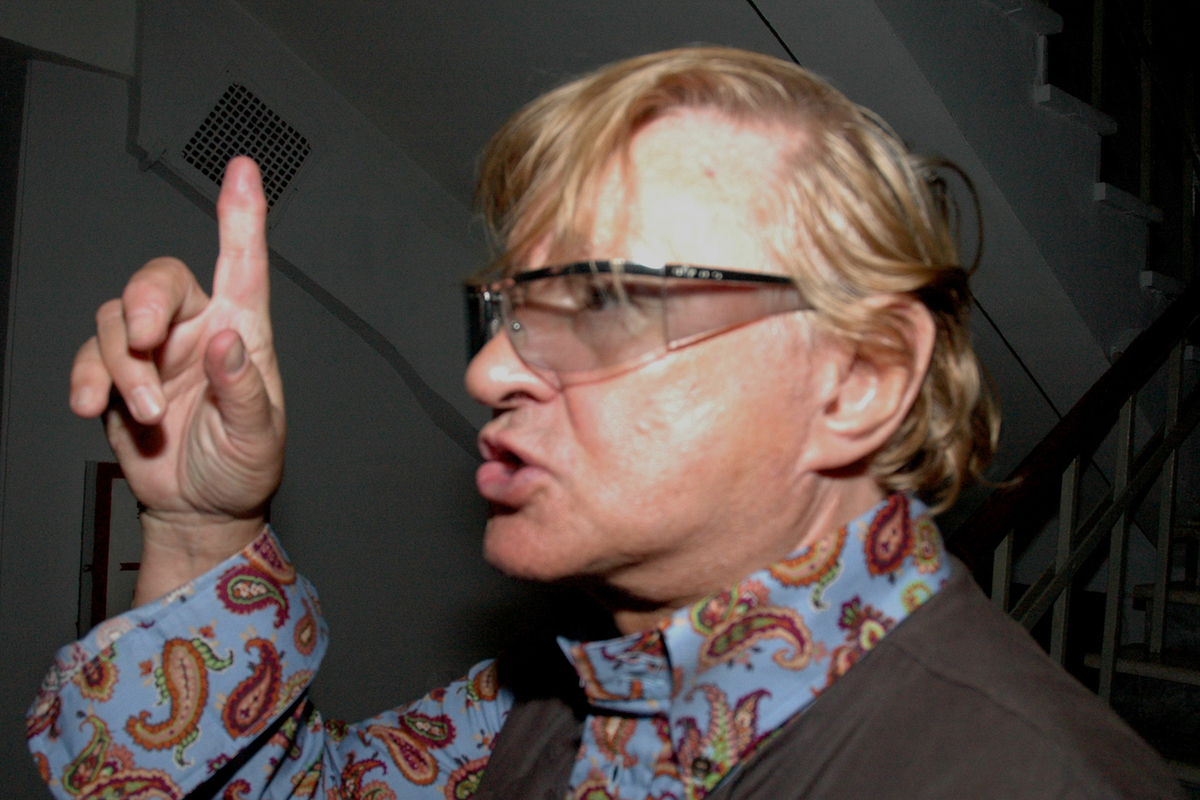Viktyuk and real theatrical life were remembered on TV
[ad_1]

The “Once Upon a Time” issue, dedicated to Roman Viktyuk, turned out to be an exemplary memoir program. The stars who worked with the director were not greedy for their memories, the chronicle footage literally glowed with energy, fragments of legendary performances looked bold to the point of indecentness. Those were the times.
The main characters of the program were Anna Terekhova, who first played Viktyuk in the production while still a twelve-year-old child, Sergei Makovetsky, who became the real star of the sensational play “M. Butterfly,” Lyudmila Pogorelova, who worked with the director for many years.
Viktyuk’s office in his theater, even after the director’s death, looks like a space whose owner just a minute ago went out somewhere. The jacket on the chair was one of Viktyuk’s signature tricks. They say that he could leave it in his office and go to another city, while the theater employees were confident that the director was somewhere nearby, and there was his jacket on the chair. The jackets themselves, it must be admitted, are worthy of special attention. They quite accurately reflected the director’s character. Brightness of nature, ability to make you fall in love and shock, emphasized reluctance to please someone.
Viktyuk knew how to be a nonconformist even in Soviet times, and with the beginning of perestroika, his performances began to resemble manifestos. In general, being a bright personality in all respects, he found himself in ideal conditions: he could come up with performances and not explain to anyone what he actually meant in his “Maids,” for example.
Viktyuk died from the consequences of coronavirus in 2020, and since then theatrical life has changed considerably in accordance with all the creepy agendas of the times. Being an extravagant director with his own view of the world is not very profitable now, and perhaps that is why there are fewer and fewer directors known on par with star actors. Archival footage of Viktyuk captures a completely different theatrical life. It was as if the director and his actors were making amazing discoveries every day and couldn’t get enough. Living participants in those events, of course, have something to remember and, perhaps, even tell their children.
JARMUSH’S MAGIC
The only way not to be disappointed in local television is to tune in after midnight. At this time, the broadcast stops shouting and teaching life, but begins to entertain, and in some places even cultivate. Last week, the television was a very useful item in the homes of those who love not the most mainstream cinema, and simply fans of director Jim Jarmusch.
Winona Ryder drives a taxi in Night on Earth, Johnny Depp goes to the spirit world in Dead Man, Iggy Pop and Tom Waits chat about this and that in one of the short stories in the film Coffee and Cigarettes, Tilda Swinton licks blood frozen in popsicle shape, in “Only Lovers Left Alive.” A nightly retrospective of Jarmusch’s films is not the most significant event in the scale of priorities of modern TV, but, perhaps, right now such humanitarian sessions are of great importance.
In the fierce debate about art today’s ideologues insist that it must be useful. That is, to praise the good, overthrow the bad and instill in people the right values. And discussions about what is “good”, “bad” and “right” are considered not very appropriate – from the official platforms, priorities seem to be set.
In such a situation, it is very difficult to make a film that deviates from the general rules – they simply won’t give money for it. Jarmusch, by the way, had about the same problems. The script for “Dead Man,” an acid western with a noticeable anti-American flavor, scared all the producers in the States, so the director found funding only in Europe, and even had to pay extra with his own money. The result is a film whose strangeness and minimalism seemed a bit silly in 1995, when the film was released, and still seems so now, almost thirty years later. But each viewing allows you to discover something new and, perhaps, become even more confused.
Jarmusch’s films can be funny, they can be sad, and they are almost always confusing. And this is precisely one of the purposes of art. When a black and white picture, silence in the frame or seemingly empty chatter makes you forget about everything, fortunately after midnight it is easier to do this.
True film classics are, of course, difficult waters in the sense that they are not as fun to “drink” as sweet soda. But it, of course, has a healing effect, because it helps to set the correct focus of perception. There are a lot of people working on television now, and they are paid well for ruining this trick in every possible way. But there are still films on the broadcast schedule for which you can sacrifice sleep. Thanks to them, there is a chance to correctly perceive speeches about our highly artistic responses to Hollywood.
Newspaper headline:
Viktyuk almighty
[ad_2]
Source link






